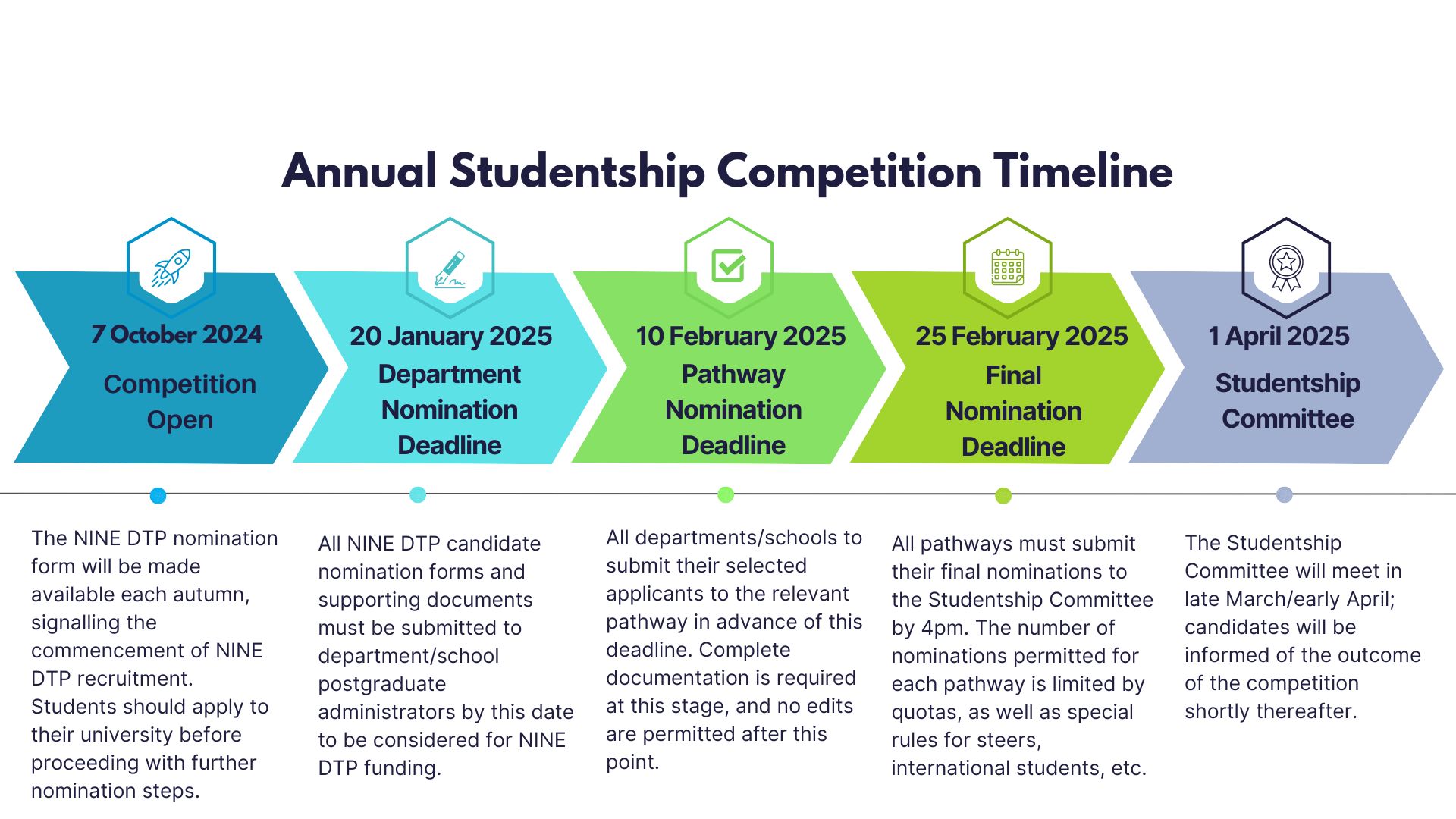The NINE DTP Nomination Process:
A Supervisor's Guide
The competition for 2025-26 is now closed
Applications are no longer being accepted. 2026-27 will open in the Autumn
The NINE DTP application process requires collaboration between the candidate and their prospective supervisor. On the one hand, the heart of the application is the research proposal, which must be conceived and drafted by the student. Unlike in some competitions (and disciplines) where it is the norm for a supervisor to write the proposal and recruit a student to do the designated ‘work’, the research project at the core of a NINE DTP student’s training is meant to be student-led (although supervisors normally provide feedback as the candidate develops proposal drafts). Certain other aspects of the nomination file – letters of reference, transcripts, etc. – also typically are gathered by the candidate. The candidate also must apply to your institution for admission.
On the other hand, the nomination packet is to be compiled and submitted by you, the supervisor. Typically, the supervisor is in a better position than the candidate to complete certain aspects of the nomination form, such as the statements about the research environment and the proposed supervisory team. These and other ‘non-proposal’ elements of the nomination form do matter. Weak statements on these topics can disadvantage a nomination that otherwise would be competitive.
To assist you in working with a prospective student whom you are seeking to nominate for a NINE DTP studentship, we present the following timeline of the nomination process, as well as links to key documents and forms, and the recording of a webinar that NINE DTP Director Philip Steinberg led for prospective supervisors. In particular, we recommend referring to the NINE DTP Nomination Guidelines document for information about the nomination process as well as criteria for assessing nominations.

Candidate Agreement
Data consent and confirmation on the conditions of the studentship.
Candidate Agreement